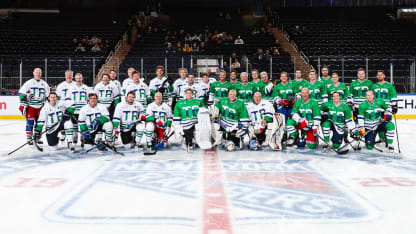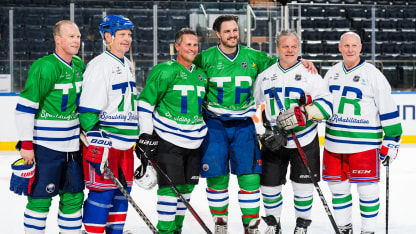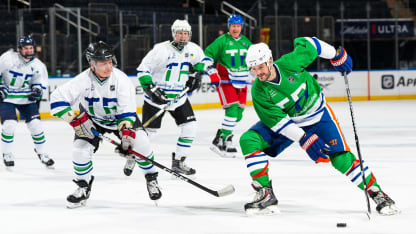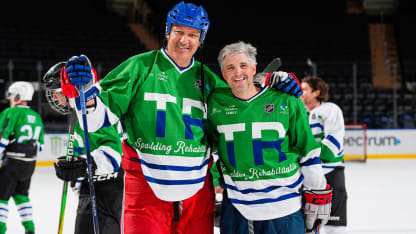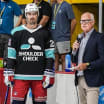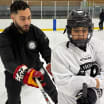NEW YORK -- Travis Roy may be gone, but his impact and legacy continue to shine.
That was evident again Wednesday at the eighth annual Travis Roy Hockey Classic, which was played at Madison Square Garden to raise money for The Travis Roy Center for Enhanced Independence at Spaulding Rehabilitation Hospital in Boston. Those who raised or donated a minimum of $3,000 played 60 minutes and got to gather in a suite to watch the New York Rangers defeat the Minnesota Wild 5-4 in overtime.
"I think the big thing for us as a family is we know how much this money means and the help that it provides to spinal cord [injury] survivors," Lee Roy, Travis' father, said. "They are going to be able to do things that they otherwise couldn't do. There's nothing more expensive than being a spinal cord survivor. So any financial help that we can provide, for this tournament to raise that kind of money for an hour of ice time … that's the impact that Travis had on people. They wanted to support Travis and that's what this tournament continues to do."
The Travis Roy Foundation was established in 1996, shortly after Travis, who was 20 at the time, was paralyzed from the neck down on a play 11 seconds into his first shift for Boston University. Roy cracked his fourth vertebra when he attempted to check North Dakota defenseman Mitch Vig but missed and went headfirst into the glass.
